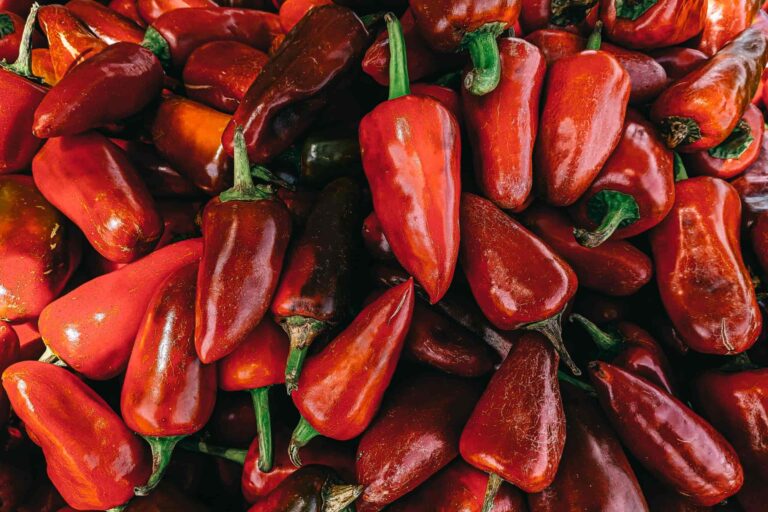The immune system has the important task of keeping us healthy and protecting us from pathogens, such as bacteria and viruses.
Moreover, a healthy diet is important to keep the immune system working at its best. Although there are many nutritional and vitamin supplements available these days, the best way to obtain our nutrients is through food.
Certain nutrients in foods have been shown to improve immune system function and enhance the immune response.
The pandemic is causing many of us to feel high levels of stress and anxiety, which suppress our immune systems, making it more likely for us to get sick.
Therefore, targeting immune-enhancing foods is a great strategy to boost our immunity and our health and overall well-being.
1. Garlic
For many centuries and across numerous cultures, garlic has been used to protect the body against pathogens such as viruses, bacteria, fungi and parasites.
Recent scientific studies have confirmed this beneficial property or garlic, demonstrating allicin, the active component found in fresh garlic, has a wide range of antibacterial and antiviral properties.
Importantly, research shows that garlic provides more health benefits when it’s in its fresh form, as opposed to dried garlic powders and supplements.

2. Ginger
Ginger contains high antioxidants levels – molecules that prevent damage inflicted by free radicals to our cells’ DNA.
Also, ginger has potent anti-inflammatory properties and can soothe a sore throat and alleviate congestion. Finally, research shows that ginger can boost immune system function by enhancing the immune response.
Some easy ways to incorporate ginger in your diet include regularly drinking hot ginger tea or adding it to stir-fries or soups.
3. Citrus fruit
Eating citrus fruit is one of the best ways to get your daily dose of Vitamin C. What’s more, citrus fruit is in its peak season in the winter months, just when we need a fresh immune booster.
Vitamin C is a potent antioxidant and improves immune system function and immune defence by supporting immune cells’ function.
Besides, Vitamin C increases the production of lymphocytes and phagocytes, which are white blood cells that protect the body against infection.
Citrus fruit is an excellent source of vitamin C, with one medium-sized orange or one half of a large grapefruit provides close to 80% of our daily requirement.
4. Red bell peppers
Red bell peppers contain many beneficial vitamins and minerals. Importantly, red bell peppers are exceptionally rich in Vitamin C – significantly more than oranges and other citrus fruit.
In fact, a medium-sized red bell pepper contains over 200% of our daily recommended vitamin C intake. Also, they are rich in iron, which is better absorbed due to Vitamin C.
Finally, red bell peppers are also very rich in vitamin A, which has many important benefits, including vision and immune function support.
5. Oily fish
Salmon, mackerel, sardines and other types of oily and bony fish contain high vitamin D levels, which play an important role in regulating various processes throughout the body.
Contrary to its name, vitamin D is actually a hormone involved in immunity, bone health, anxiety and depression. It is made in response to sunlight, which is not found in abundance in Canada.
Persons with darker skin tones make less vitamin D than lighter-skinned individuals. It is important to get your vitamin D level checked by your healthcare professional, as many are severely deficient without knowing it.
Low vitamin D can also increase the frequency of migraines. It is worth noting that persons most affected by the pandemic have low vitamin D levels.
At Headache Migraine & Concussion Centre (HMC Centre), our healthcare providers recommend a healthy vitamin D range (around 150 mmol/L) for optimal health. You will notice the difference.
Research studies show that omega-3 fatty acids can help boost the immune system by enhancing the functioning of immune cells.
6. Turmeric
Turmeric is a yellow spice originating from the turmeric plant and is the main spice in curry. Curcumin, the main active ingredient found in turmeric, has many beneficial properties, including powerful anti-inflammatory and antioxidant effects.
Also, medical research studies show that curcumin can enhance immune cell activity and stimulate antibody responses to pathogens, such as viruses and bacteria.
Health experts and nutritionists recommend combining turmeric with a healthy fat source, such as avocado or coconut milk, to increase its absorption into the bloodstream.
A great way to add more turmeric to your diet is to add it to your smoothies, soups or morning oatmeal.
Conclusion
Incorporating these foods into your diet is a great way to strengthen your immune response.
However, it is also important to remember that variety is the key to eating healthy – a healthy diet consists of fruits, vegetables, whole grains, lean proteins and healthy fats.
Also, it is essential to pay attention to serving sizes since spending more time at home during the coronavirus pandemic makes us more likely to consume more calories than we need, leading to weight gain.


















